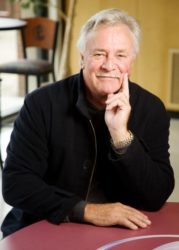The idea of well-being seems to be part of the zeitgeist. From multiple research projects to organisations and individuals offering the promise of a good life and fulfilling life and positive outcomes. There also is emerging a seeming blending of pop psychology and education, which may create a potentially dangerous grounding for educational discourses and futures (see Peters & Tesar, 2019). In the political space, earlier this year, the New Zealand Government announced its new ‘well-being’ budget, a concept that has captured the attention of the world media. It is a discursive label and piece of political marketing that has generated much discussion. What does a well-being budget means? And what can it tell us about government agencies’ understanding of well-being? In practice, a significant proportion of the budget funding ($1.9 billion) was allocated to the area of mental health, where the government has identified that in any given 12 month period, about one out of five New Zealanders will experience, or will be diagnosed with, a mental illness. Another significant portion of the budget will be directed to the up to 300,000 children, who, according to the Government’s statistics, live in poverty or experience significant hardship. As a rationale, poverty has been clearly identified as hav-ing long term effects on children’s well-being in areas including housing and health, as well as education. This editorial explores what philosophical promise(s) for well-being might lie under-neath these statements, including the notion that well-being may be discussed as narrowing rather than opening up possibilities for engagement.
Historicising well-being
The idea of well-being has long been heralded as vital to the good life of all human subjects. Many curriculum frameworks clearly articulate the idea of well-being as foundational to the curriculum itself, and as encompassing both the notion of ’caring’ and the notion of ‘education’. Moving beyond a simplified idea of well-being as a single, easily defined area of concern or interest may potentially mean to move beyond the phrases that tend to describe this concept, e.g. it means to care for, to be happy, to stay healthy or just meeting or realizing human subjects’ own potential.
The thinking and examination of the notion of ‘the good life’, of well-being, and hedonic and eudaimonic traditions can be traced back to Greek philosophy. These lenses, while being distinctive, allow also for significant overlap, creating a liminal space which may muddy the clear cut understanding of well-being as seen from government agencies’ perspective. A hedonic lens maximises the comfort or pleasure, and fulfillment of one’s needs and desires, positioning the human subject (or student) into a potentially passive position. It is important to consider distinctions between the subjective and objective idea of well-being as a hedonic concept and also the often missed ethical or critical elements of eudaimonic well-being. For instance, Deci and Ryan (2008) take on an eudaimonic conception of well-being, which allows the becoming of a multi-dimensional human subject, where well-being is central to a ‘good-life’.
There is significant thinking on understanding well-being as not necessarily just focused on how human subjects are ‘being well’, but also the role of consciousness in knowing that they are being well. Their approaches are overlapping. A hedonic approach to well-being emphasises one’s feeling about life, including how ‘pleasant’ it is (on a positive/negative scale) – an affective approach. Subjective well-being (how we perceive that we do feel) and ‘objective’ perspective (related to scales and measurements) so we can evaluate and under-stand and achieve positive well-being ‘outcomes’. Eudaimonic approaches to well-being extend past the notion how the human subjects feel. Eudaimonic approaches locate the idea of ‘being happy’ or ‘happiness’ in relation to the ethics and practice of a good life, or with actualizing one’s ‘potential’, a reflective and critical existence. Eudaimonia addresses also a way of being part of and within communities
There are significant links between virtue, the good life, and happiness. The links between virtue of character (arete as ‘excellence of any kind’ and ‘moral virtue’) and happiness (eudaimonia as ‘welfare, wellbeing, human flourishing and prosperity’) was one of the central preoccupations and theses in ancient ethics, as evident in Aristotle’s work. However, this has also created much disagreement about what constituted eudaimonia. Socrates postulated that virtue is not only sufficient, but also necessary for conceptualising eudaimonia. He further agues in the dialogue Meno that ‘everything the soul endeavours or endures under the guidance of wisdom ends in happiness’. Aristotle and Socrates have both argued that all virtues, such as self-control, courage, justice, piety, wisdom as well as other qualities of mind and soul which are related, must be pre-sent if a human being aims to have (led) a good and happy (eudaimon) life. Aristotle considers virtue and its performance to be one of the most relevant actants in the concept of eudaimonia. However, the importance of external goods such as wealth, health and beauty need also to be considered.
On the other hand, Greek philosopher Epicurus understands eudaimonia as a life of pleasure and freedom from pain and distress. Yet he does not advocate pursuing each and every pleasure. One should not seek instant gratification but to work out a sensible long-term policy or approach in order to maximise pleasure. As such, he argues that a life of pleasure will coincide with a life of virtue and claims that we ought to seek virtue because virtue brings pleasure. Epicurus’ basic doctrine is clear: a life of virtue is the life which generates the most amount of pleasure, and it is for this reason that we should be virtuous, as a life of pleasure (and absence of pain) conceptualizes what eudaimonia is.
Studying the analysis of ethics and well-being requires us to uptake additional historizing. We need to consider the study of two subjects, ‘living rightly’ and ‘living well’. Well-being concerns the latter; as the notion to live well is to have a life that’s embedded within the notion of the wellbeing, and it is good for the person living it. Well-being is a multifaceted concept, and has multiple names and labels – flourishing; quality of life; the good life; prudential value; self-interest; happiness and fulfillment.
Theorizing well-being
Wellbeing can be conceptualised in multiple ways, for instance Moore (2015) argues that:
well-being is a matter of having things go well for oneself or with one’s life, and one’s ill-being is a matter of their going ill. Among well-being’s friends and relations are welfare, happiness, utility, eudaimonia, self-interest, quality of life, fulfillment, flourishing, and prudential good. What is it for things to go well for oneself or one’s life? Hedonists say it is a matter of having pleasure and not having pain or displeasure. Desire theorists think it is having in one’s life things that fulfill one’s desires, objectivists say it is having certain things in one’s life whether or not they fulfill one’s desires, and perfectionists think it is having in one’s life things that are relevantly related to one’s individual or group nature. Monists hold that well-being is constituted by just one basic sort of matter, while pluralists think it is constituted by more than one.
As per Moore’s thinking above, there are multiple theories that link well-being or offer a strong theorizing lens. Theories of hedonism relate to well-being focusing achieving a balance of pleasure over pain. In contrast, economists utilise desire theories to conceptualise human subjects’ well-being as consisting of the satisfaction of preferences or desires, made possible through the ranking of preferences and the development and performance of the ‘utility functions’ for individual human subjects. Furthermore, there are ‘objective list theories’ which list items which constitute well-being which are positioned outside of the space of the pleasurable experience, and not in desire-satisfaction mode (friendship, knowledge, etc.). In contrast further, ‘perfectionist theories’ are focused on the items on the list that share the realization, actualization or otherwise perfecting of human nature.
These theories link to contemporary philosophical debates, and raise important questions regarding well-being. What is the nature of wellbeing in relation to the human and non-human subjects of well-being? What are the individual, group and collective subjects of well-being? What are the relations between one’s well-being at a time, and one’s well-being over time, including over one’s lifetime? What is the place of culture and social forms or practices in well-being? These questions are critical to consider when we are considering the philosophy of wellbeing.
These questions about well-being are explored in the work of Gough (2004) in relation to welfare and social policy. Welfare relates to the ‘faring well’, to happiness or prosperity in the sense of ‘wealth’. While earlier in the 20th of century there was a tendency towards the objectification of needs associated with the welfare state, later on in the 20th century we have entered times of multidimensional poverty, and embraced the concepts of participation, cultural difference, experiential knowledge and other notions which open up possibilities for diverse thinking about well-being and what it could mean, and how it could be theorized.
The notion of welfarism, as Raz’s (1986) noted, is the ‘humanistic principle’, which claims that ‘the explanation and justification of the goodness or badness of anything derives ultimately from its contribution, actual or possible, to human life and its quality’ (p. 194). Stemming from Raz, welfarism means that If we expand this principle to cover non-human well-being, it might be read as claiming that the justificatory force of any moral reason rests on well-being.
This raises ideas regarding what has been dubbed as ‘subjective well-being’ and ‘objective well-being’. While Diener (1984) coined the term ‘subjective well-being’, Kahneman (1999) argues that happiness leads to success in domains of life and potentially adds years to life expectancy. He discusses the idea of life-satisfaction, and the balance of affect and happiness, which appear to be coherent, however subjective well-being has been discussed as holding cultural bias and preferences. On the other hand, objective well-being is by it claims objective, external, and portraying universal notions of wellbeing, such as basic needs. The question is who decides on needs? The ‘theory of human need’ portrays universal goals to avoid harm and participate in a social form of life, and identifies basic human needs for autonomy and health. The notion of eudaimonic well-being consists of fulfilling, or realizing one’s human nature. Erika Fromm (1981) argues that deciding
needs (desires) that are only subjectively felt and whose satisfaction leads to momentary pleasure, and those needs that are rooted in human nature and whose realization is conducive to human growth and produces eudaimonia, i.e. ‘well-being’. In other words … the distinction between purely subjectively felt needs and objectively valid needs—part of the former being harmful to human growth and the latter being in accordance with the requirements of human nature (p. xxvi).
Distinguishing ‘those needs (desires) that are only subjectively felt and whose satisfaction leads to momentary pleasure, and those needs that are rooted in human nature and whose real-ization is conducive to human growth and produces eudaimonia, i.e. “well-being”’. This is where links could be made to the psychology of happiness (and positive psychology), where thinkers and psychologists Abraham Maslow and Carl Rogers emphasize humans’ uniqueness, human potential, and psychological growth in the later part of the 20th century. These ideas evolved into the study of what makes life experiences pleasant or unpleasant, and studies of feelings of pleasure and pain and relevant concerns, and notions of binaries such as interest and boredom, joy and sorrow, and satisfaction and dissatisfaction. Some controversial aspects of positive psychology as conceptualized by Seligman have been already critiqued in Educational Philosophy and Theory (Peters & Tesar, 2019).
Towards the well-being in contemporary digital economies
In terms of classical economics, the dominant approach is traditionally articulated in terms of attempts of human subjects to increase their utility, where utility is a measure of relative satisfaction derived from consuming it. In first of half of the 20th century, the ‘cardinal notions’ of utility were rejected in favor of ‘ordinal notions’ of utility, which would only determine relative preferences, which are reduced to a preference index. Welfare economics on the other hand is a normative branch of microeconomics that aims to measure and improve social welfare; and the welfare economics in particular aim to assist the public sector, which had promotion of the general welfare as a central aim.
There has also been an emergence of Happiness Economics, or the paradox of happiness. Human subjects in top indexed and high-income countries were not in any way significantly happier than people residing in low-income countries. Subsequently, the rises of income above a certain threshold within these countries has not traditionally resulted in a significant increase in happiness (Easterlin, 1974).
Currently, there are numerous studies being conducted on the idea of well-being as it relates to digital principles. For instance in 2015, UNESCO attempted to adapt the notion of internet universality as a concept and framework that summarises their position on the Internet. The concept works with four principles, which argue that the Internet should be human rights-based, open, accessible, and based on multi-stakeholder participation. Of interest is in particular the act of adopting a human-rights framework as a basis for articulating a set of rights and principles for the Internet. Internet universality is a concept that was crafted because the best of what ‘is’ intended to be captured, while at the same time wanting to make manifest that it is also an ‘ought’ for good practice. As such, the concept becomes not only both descriptive and normative, but also analytical. The concept is also both a theoretical and practical step towards the realization of the knowledge society that depends on rights and freedom, openness, access, and participation. The major step conceptually is to frame up appropriately concepts of rights and associated freedoms within a multi-stakeholder driven universe. Digital well-being and internet’s history, its societal effects and relation to culture, its creative potential and its governance are all essential to conceptions of digital well-being (Peters, 2014). Gui, Fasoli, & Carradore (2017) identify the need to consider and reflect on the need for the digital well-being skills. They present an interesting overview of a rationale why this is so urgent:
- the overabundance of possible choices,
- the easiness to switch from one focus to another,
- the economic exploitation of human attention,
- the convergence of different activities in the same device,
- the persistence of the above conditions throughout the day (p. 162)
And while Gui et al. in their paper define the need for particular skills (and even name them), we concur with returning to the philosophy and in particular the Greek thinkers discussed earlier. Looking on this space, and the conditions informing it, the hedonic and eudaimonic approaches have the potential to create a strong space for digital well-being. The well-being budget, while heralded and clearly ground-breaking for its focus, the actual distribution of funds and under-standing of the notion of wellbeing is missing the much needed analysis of what well-being is, and how this concept came to an existence. As such, the result is that well-being is often reduced to an economic concept contained within a budget line, and the pouring of funding into areas which are apparently at risk, without necessarily considering the future focused discourses which impact the well-being of the population to come.
References
Deci, E. L., & Ryan, R. M. (2008). Hedonia, eudaimonia, and well-being: An introduction. Journal of Happiness Studies, 9(1), 1–11. doi:10.1007/s10902-006-9018-1
Diener, E. (1984). Subjective well-being. Psychological Bulletin, 95(3), 542–575. doi:10.1037/0033-2909.95.3.542
Easterlin, R. (1974). Does economic growth improve the human lot? Some empirical evidence. In P. A. David & M. W. Reder (Eds), Nations and households in economic growth: Essays in honor of Moses Abramovitz (pp. 89–125). Academic Press.
Fromm, E. (1981). Primary and secondary process in waking and in altered states of consciousness. Academic Psychological Bulletin, 3, 29–45.
Gough, I. (2004). Human well-being and social structures: Relating the universal and the local. Global Social Policy: An Interdisciplinary Journal of Public Policy and Social Development, 4(3), 289–311. doi:10.1177/1468018104047489
Gui, M., Fasoli, M., & Carradore, R. (2017). “Digital well-being”. Developing a new theoretical tool for media literacy research. Italian Journal of Sociology of Education, 9(1), 155–173. doi:10.14658/pupj-ijse-2017-1-8
Kahneman, O. (1999). Objective happiness. In E. Diener, N. Schwarz, & O. Kahneman (Eds.), Well-being: The foundations of hedonic psychology (pp. 3–27). Russell Sage Foundation.
Moore, A. (2015). Well-being. https://dx.doi.org/10.1093/obo/9780195396577.016.0284.
Peters, M. A. (2014). ‘Internet universality’: Human rights and principles for the Internet. Knowledge Cultures, 2(3), 15–28.
Peters, M. A., & Tesar, M. (2019). The snake oil charms of positive psychology. Educational Philosophy and Theory, 1–4. doi:10.1080/00131857.2019.1678428
Raz, J. (1986). The morality of freedom. Oxford University Press.
Marek Tesar, The University of Auckland, Auckland, New Zealand
m.
Michael A. Peters, Beijing Normal University, Beijing, China
mpeters@bnu.





